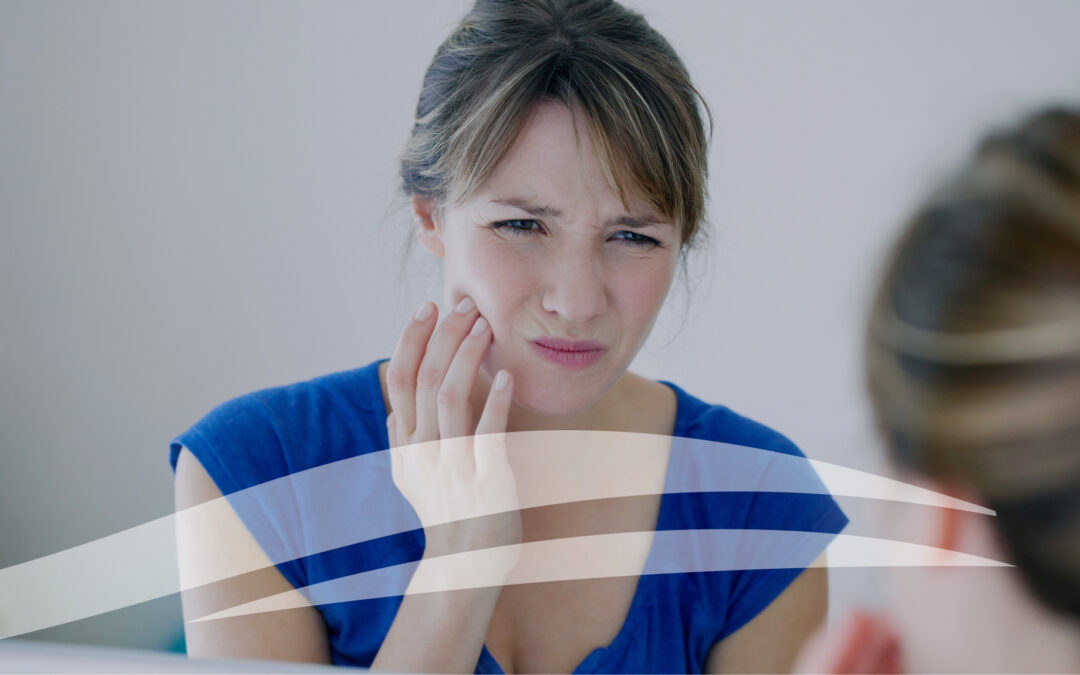Could tooth grinding and tooth clenching be affecting your smile in more ways than you realize? While most people are aware of the jaw pain and worn teeth that come with bruxism, there are other hidden dangers as well. Here’s what you need to know about these less obvious effects of grinding your teeth.
Unmasking Bruxism: Signs, Symptoms, and Impact
What is bruxism? It’s a common condition where a person grinds or clenches their teeth in their sleep. It can arise due to a range of risk factors, including stress and misaligned teeth. It wears away enamel, which can impact the appearance, function, and health of your smile. Left untreated, it can cause a wide range of oral health issues.
You might notice visible wear affecting your teeth, but there are other signs to watch out for as well. Jaw pain and headaches can both indicate bruxism. Your temporomandibular joint can also be affected, causing popping or clicking noises from the jaw.
Unveiling Hidden Dangers: Beyond the Obvious Tooth Wear
There are a variety of potential consequences to long-term tooth grinding. These are some that you might not have heard of before, and they can have a lasting impact on your smile.
1. Microcracks
Grinding your teeth doesn’t just wear away enamel laterally. It also applies vertical pressure, which leads to stress throughout the entire tooth. Over time, minor damage, such as microcracks, can form.
These microcracks can grow over time, eventually becoming visible damage. Cracks and chips open your tooth up to the possibility of infection or even serious dental trauma if a tooth fractures completely.
2. Tooth Sensitivity
Have you noticed that your teeth are becoming more sensitive? As enamel wears away, it provides less protection for the sensitive interior layers of your teeth. Increased sensitivity could be caused by bruxism.
That sensitivity can result in pain when biting and chewing. You can also find yourself more sensitive to sugary or acidic foods. Pain related to the temperature of food can also occur.
3. Damaged Restorations
If you have any fillings, dental crowns, dental bridges, or other restorations, bruxism can affect them. Tooth grinding can quickly damage these restorations and lead to them needing to be replaced.
While the materials used for dental crowns and bridges are strong, your jaw is powerful and exerts significant force during grinding. The restorations are liable to chip or crack over time.
4. Misaligned Teeth
As bruxism wears your teeth down, it doesn’t do so evenly. This can lead to your bite coming together at strange angles and putting awkward pressure on your teeth. Eventually, teeth can shift positions and create malocclusions that may require orthodontic treatment.
This can become a vicious cycle, as misaligned teeth also contribute to bruxism. Without treatment, you could find the appearance and function of your smile quickly spiraling out of control.
5. Overall Health and Well-Being
Your oral health isn’t isolated. It also affects your overall health and well-being. Bruxism can affect the appearance of your smile, which, in turn, leads to reduced self-confidence.
Chronic pain can also have a serious impact on your quality of life. And you could face nutritional issues if sensitivity and damaged teeth impede your ability to bite and chew naturally.
Treatment Approaches: Easing the Grind and Its Effects
It’s clear that bruxism is a condition you shouldn’t ignore. Enamel doesn’t grow back once worn away, so visiting your dentist near Middletown, Ohio, as soon as possible to discuss treatment options is your best course of action.
There are a variety of potential treatment options for bruxism. If stress is a factor, finding ways to manage that stress can help. Getting more exercise, taking time for yourself, or seeking advice from a mental health expert are all potential options. In cases where misalignment is a factor, you may need orthodontic treatment.
Nightguards are one treatment option that may be used alone or in tandem with other treatments. A custom nightguard from your dentist is molded to fit your teeth perfectly, providing a soft layer that prevents them from grinding against each other. They’re similar to sports mouth guards but designed specifically to be worn during sleep.
Take action against bruxism today.
Bruxism causes a wide range of oral health issues and will only continue to get worse over time. If you notice any signs of bruxism, you should reach out to your dentist in Middletown, Ohio, sooner rather than later. Acting quickly can protect your smile and provide a foundation for long-term oral health.
You can visit Dr. Steven A. Lang, DDS, to find out what’s behind your bruxism. Treatment options such as nightguards are available to prevent the serious issues bruxism causes. Schedule an appointment with Dr. Lang to get started.

